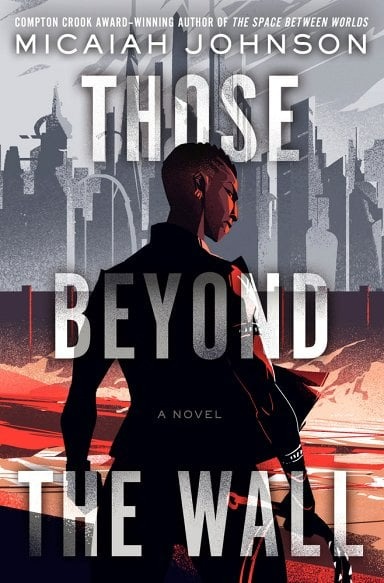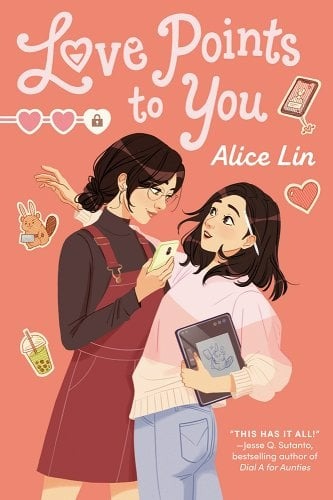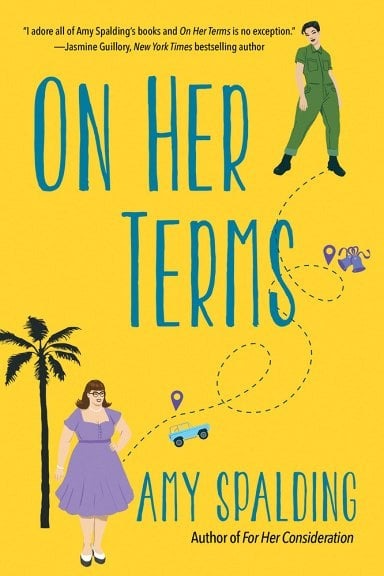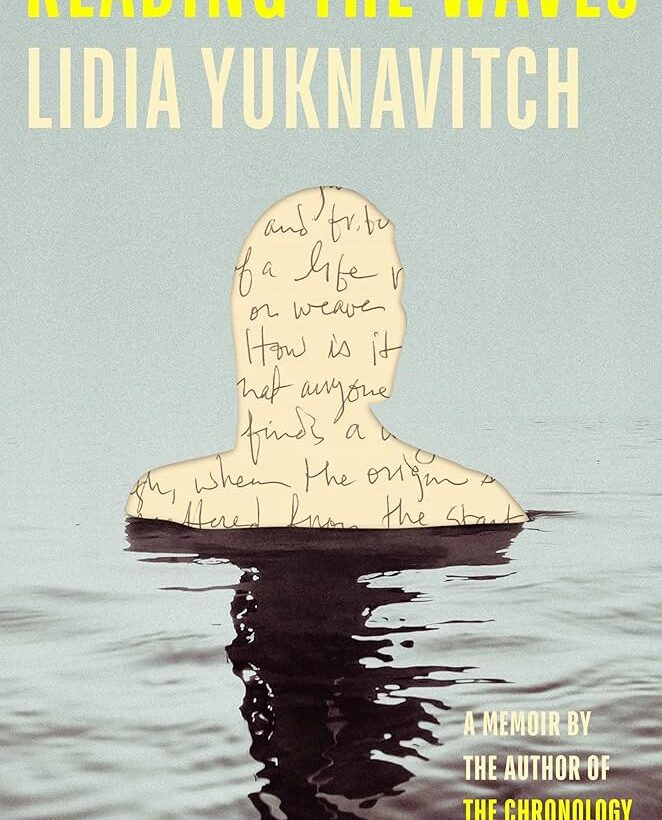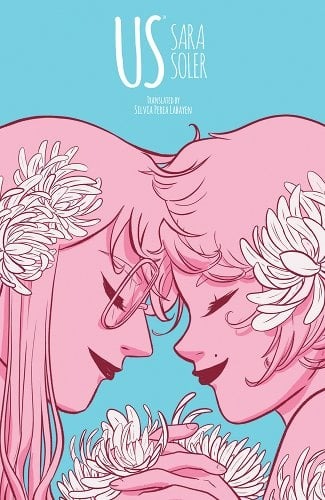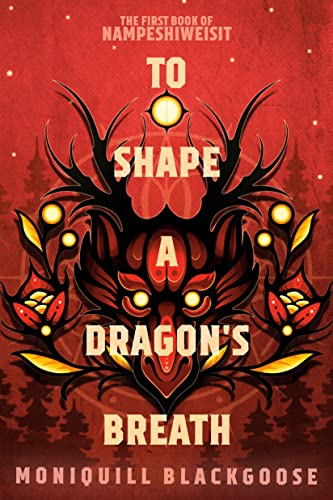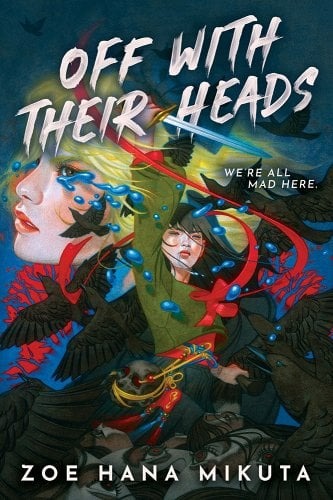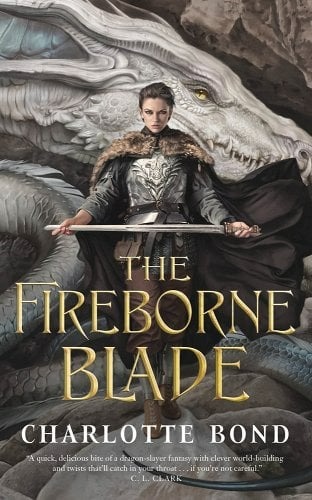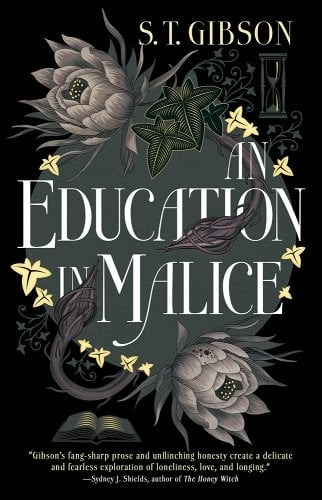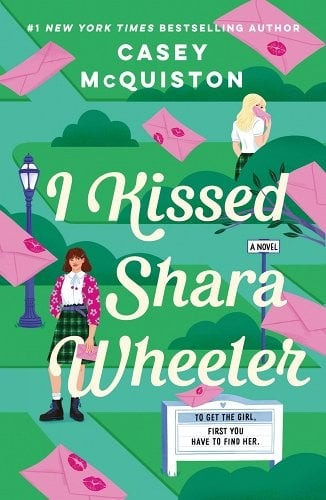I don’t think I’ve ever been so pulled into a novel by the dedication, author’s note, and epigraph. (The epigraph to Part One is “i did not come to preach of peace / for that’s not the hunted’s duty.” -Danez Smith.) In the author’s note, Johnson explains the inspiration behind this book coming from her time participating in the 62-day sit in at Nashville’s Tennessee State Capitol. I found myself writing down multiple quotations, including…
A Sweet and Swoony YA Romance: Love Points to You by Alice Lin Review
First of all, this is of my all-time favourite YA covers. It’s so adorable. And I’m happy to say that the story delivered. We’re following Lynda, a teenager who is devoted to getting into her dream art school. Unfortunately, her father just remarried and she now has to share a room with her stepsister, Josie.Read More
An Introspective Bisexual Romance: On Her Terms by Amy Spalding
Immediately after recognizing her bisexuality, Clementine gets swept up in a (somewhat boring) long-term relationship with a boyfriend who wants a conventional, white-picket-fence-and-a-baby ever after. After breaking up with him, she’s ready to dive into her “baby gay” era—if only her friends and family would stop looking at her with pity. After meeting Chloe LeeRead More
Memory as Storytelling: Reading the Waves by Lidia Yuknavitch Review
Chronology of Water by Lidia Yuknavitch has been on my to-read list for years; I’ve heard nothing but excellent things about that memoir. So, when I saw that she had new one out (that I could talk about on the All the Books podcast), I had to pick it up! Reading the Waves ended upRead More
Three Hope-Filled Sapphic Graphic Novels
I appreciate when coming-of-age stories show people continuing to learn and grow through college and beyond, and this month, I read three graphic novels in that vein: two college stories and one memoir. All of these stand-alone books feature adults but are appropriate for young adult readers, and all of them are lighthearted. Bunt! StrikingRead More
A Compelling Queer Indigenous Fantasy: To Shape a Dragon’s Breath by Moniquill Blackgoose Review
I love a magic school book, and I love a dragon book, and I especially love a dragon school book. To Shape a Dragon’s Breath by Moniquill Blackgoose was such a great entry to the genre. I couldn’t put it down, and I keep thinking about its innovative world-building. Anequs is the protagonist I didn’t know I’veRead More
A Wicked Wonderland: Off With Their Heads by Zoe Hana Mikuta Review
It’s been five years since young witches and lovers Caro Rabbit and Iccadora Alice Sickle were both sentenced to Wonderland, the dark forest where monsters called Saints lurk, for a crime they didn’t commit. In the process of escaping, they break one another’s hearts. Now Icca will stop at nothing to exact her revenge onRead More
Finally, the Canonically Queer Lady Knight We Deserve in The Fireborne Blade by Charlotte Bond
Charlotte Bond’s dark fantasy novella, The Fireborne Blade, is a beautifully straightforward dungeon crawler until it isn’t. Protagonist Sir Maddileh is a rarity as a knighted woman and she’s in dire need of a truly spectacular feat to reclaim her honor and restore her standing at court. Enter her current foolhardy quest to retrieve the Fireborne Blade. The onlyRead More
All of the Sapphic Vampires, None of the Victorian Homophobic Overtones: An Education in Malice by S. T. Gibson
Like many queer women, I’m sure, I have a strange relationship with the original Carmilla. On the one hand, sapphic vampires are objectively sexy. On the other hand, the way the danger she poses is framed as inextricably linked to her queerness (and her foreignness) is, well, unpleasant, to say the least. I always say thatRead More
Beyond the Surface: I Kissed Shara Wheeler by Casey McQuiston
There’s only one thing standing in Chloe Green’s way of winning valedictorian: the town’s favorite and Chloe’s rival, Shara Wheeler. A month before graduation, Shara kisses Chloe, then does the most infuriating thing: vanishes. Chloe and two other boys Shara kissed are left with a series of cryptic notes; a scavenger hunt to find her.Read More
- 1
- 2
- 3
- …
- 21
- Next Page »
